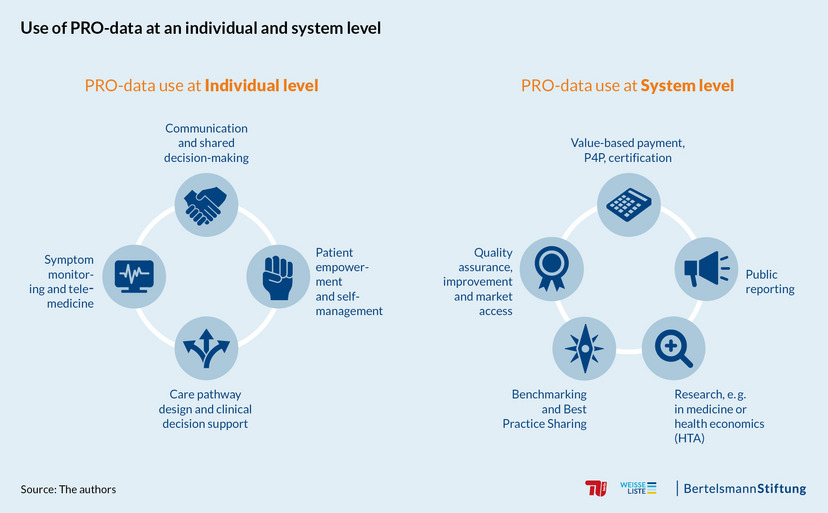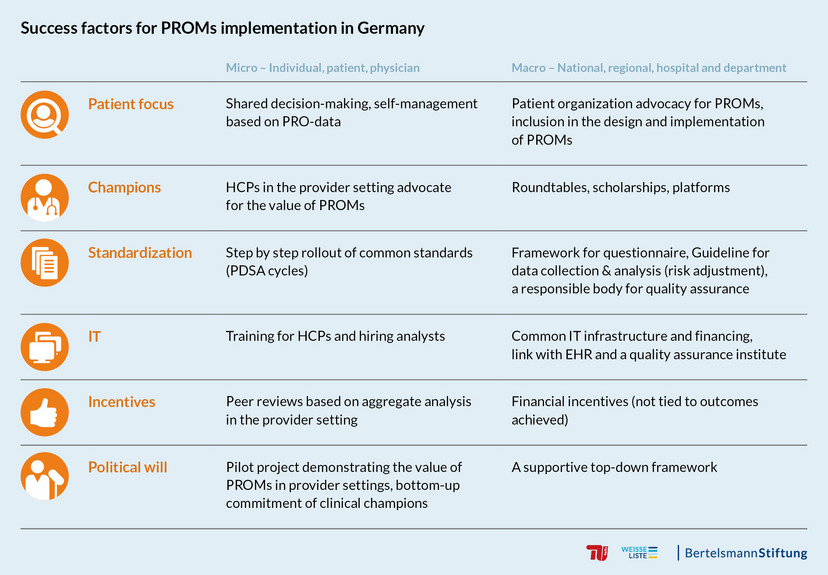Patient Reported Outcome Measures (PROMs) are being collected to assess whether a medical intervention has improved, stabilised or worsened a patient’s subjective health status. PROMs thereby contribute to more patient orientation and overall quality improvement in health care.

© xyz+ - stock.adobe.com
Implementation of Patient-Reported Outcome Measures (PROMs)
Patient-Reported Outcome Measures (PROMs) have been developed to measure a patient’s subjectively perceived health status in an objective manner. PROMs have generated wide stakeholder interest globally, and several countries have implemented PROMs into their health systems to different degrees. Our study offers an international comparison of PRO-data use and elaborates on what Germany can learn from other countries.
Content
Use for different purposes
There are different fields of application for PROMs. Employed as a monitoring instrument in the treatment process, for example in cancer therapy, they help to detect side effects or symptom changes, and thus allow for the therapy to be adjusted quickly and precisely. In addition, systematically collected and aggregated PRO data provide insights into potential health gains and possible risks of a certain treatment option. These insights can then be used for shared decision making or care pathway and guideline adjustments. PROMs can also contribute to external quality assurance, public reporting or be used in quality contracts with outcome-based remuneration.
PROM-utilization is still fragmented in Germany
In Germany, some hospitals already use PROMs for quality improvement and more patient orientation. However, the growing number of individual initiatives will not be able to exploit the full potential of Patient Reported Outcomes. This also requires a comprehensive national strategy that points the way, for example, to an IT infrastructure for PROMs, to a standardisation of instruments and to prioritize areas of PROM utilisation, for example in registries or German Disease Management Programmes. Such a strategy should be jointly developed by all relevant stakeholders – patient representatives, clinics, professional medical associations, health insurance companies, IT service providers, and politics.
Learning from other countries
Other countries are already further along in this respect. Denmark, Australia or Canada are pushing the use of PROMs within a national or regional implementation framework. In the Netherlands, policymakers have adopted value-based health care, one of the building blocks of which is the systematic collection of PROMs. In addition, most Dutch hospitals have adopted a standardised audit and benchmarking system. Germany can learn from the experience of PROM introduction and usage in other countries and their best practices. The international comparative study by the TU Berlin identifies six important success factors and proposes numerous concrete measures for PROMs implementation in Germany.






